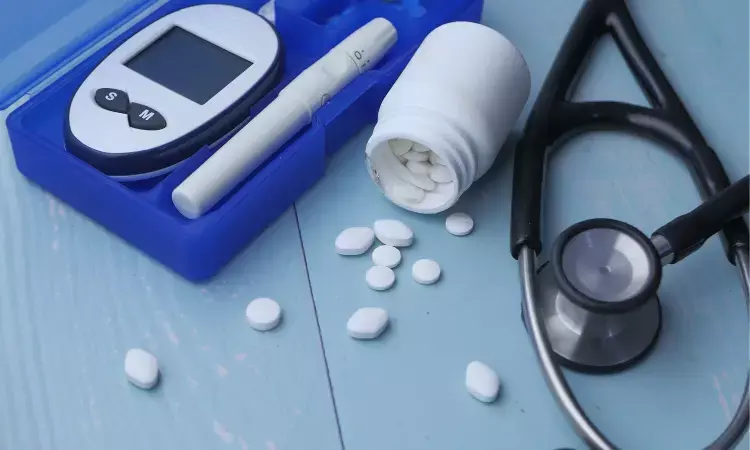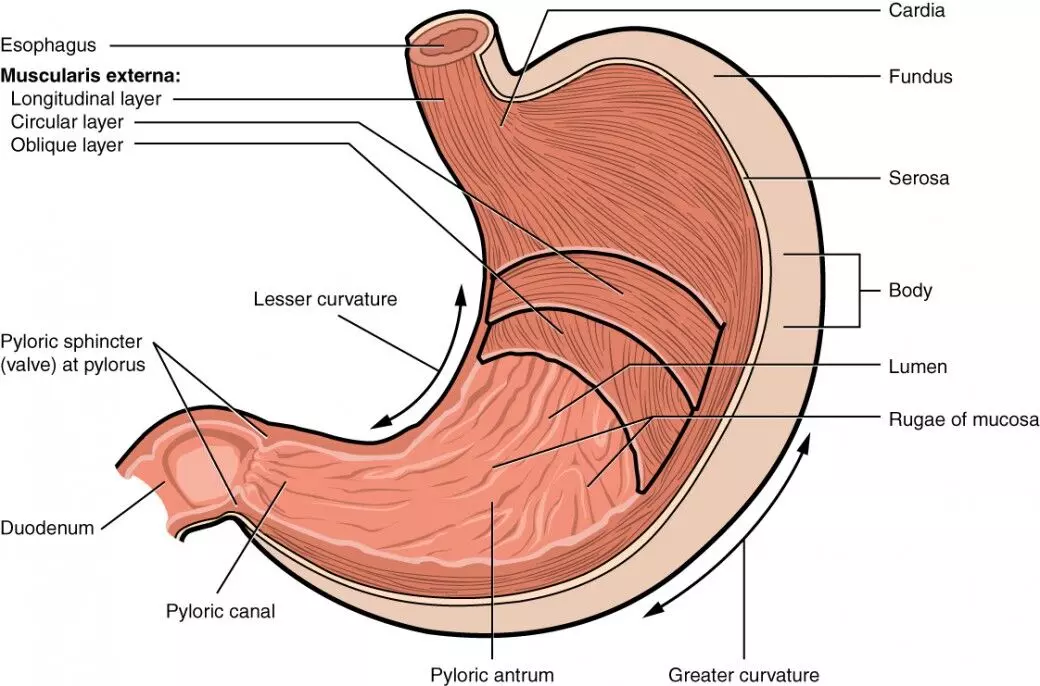- Home
- Medical news & Guidelines
- Anesthesiology
- Cardiology and CTVS
- Critical Care
- Dentistry
- Dermatology
- Diabetes and Endocrinology
- ENT
- Gastroenterology
- Medicine
- Nephrology
- Neurology
- Obstretics-Gynaecology
- Oncology
- Ophthalmology
- Orthopaedics
- Pediatrics-Neonatology
- Psychiatry
- Pulmonology
- Radiology
- Surgery
- Urology
- Laboratory Medicine
- Diet
- Nursing
- Paramedical
- Physiotherapy
- Health news
- Fact Check
- Bone Health Fact Check
- Brain Health Fact Check
- Cancer Related Fact Check
- Child Care Fact Check
- Dental and oral health fact check
- Diabetes and metabolic health fact check
- Diet and Nutrition Fact Check
- Eye and ENT Care Fact Check
- Fitness fact check
- Gut health fact check
- Heart health fact check
- Kidney health fact check
- Medical education fact check
- Men's health fact check
- Respiratory fact check
- Skin and hair care fact check
- Vaccine and Immunization fact check
- Women's health fact check
- AYUSH
- State News
- Andaman and Nicobar Islands
- Andhra Pradesh
- Arunachal Pradesh
- Assam
- Bihar
- Chandigarh
- Chattisgarh
- Dadra and Nagar Haveli
- Daman and Diu
- Delhi
- Goa
- Gujarat
- Haryana
- Himachal Pradesh
- Jammu & Kashmir
- Jharkhand
- Karnataka
- Kerala
- Ladakh
- Lakshadweep
- Madhya Pradesh
- Maharashtra
- Manipur
- Meghalaya
- Mizoram
- Nagaland
- Odisha
- Puducherry
- Punjab
- Rajasthan
- Sikkim
- Tamil Nadu
- Telangana
- Tripura
- Uttar Pradesh
- Uttrakhand
- West Bengal
- Medical Education
- Industry
DPP4 inhibitors may increase risk of cholecystitis in T2 Diabetes patients: BMJ

Increased risk of Cholecystitis was found in Type 2 Diabetes patients who were using Dipeptidyl peptidase-4 inhibitors. The study was published in the journal, The BMJ 2022.
Diabetes is a pandemic affecting a larger population across the globe. Multiple drugs were introduced to treat the condition either as monotherapy or as combination therapy. Of these Dipeptidyl peptidase-4 inhibitors are commonly used for the management of Type 2 Diabetics. Recently concern was raised that Dipeptidyl peptidase-4 inhibitors may cause gall bladder or biliary diseases. So, researchers from the Peking Union Medical College Hospital, China conducted a study to examine the association between dipeptidyl peptidase-4 inhibitors and gallbladder or biliary diseases.
Zhang et al conducted a systematic review with pairwise and network meta-analysis to find the association. Using the keywords they conducted a search strategy in various databases like PubMed, EMBASE, Web of Science, and CENTRAL from inception until 31 July 2021. They included randomized controlled trials of adult patients with type 2 diabetes who received dipeptidyl peptidase-4 inhibitors, glucagon-like peptide-1 receptor agonists, and sodium-glucose cotransporter-2 inhibitors compared with placebo or other antidiabetic drugs. The outcomes of measurement were gallbladder or biliary diseases, cholecystitis, cholelithiasis, and biliary diseases. The data were extracted independently and the quality of the studies was assessed by two reviewers. Using the Grading of Recommendations, Assessment, Development, and Evaluations framework (GRADE) approach, the quality of the evidence for each outcome was assessed. Pooled odds ratios and 95% confidence intervals were used for the meta-analysis.
Results:
- 104 833 participants from 82 randomized controlled trials were included in the pairwise meta-analysis.
- Dipeptidyl peptidase-4 inhibitors were significantly associated with an increased risk of the composite of gallbladder or biliary diseases and cholecystitis but not with the risk of cholelithiasis and biliary diseases when compared with placebo or non-incretin drugs.
- The association was seen in diabetics using dipeptidyl peptidase-4 inhibitors for longer duration.
- The meta-analysis revealed that dipeptidyl peptidase-4 inhibitors increased the risk of the composite of gallbladder or biliary diseases and cholecystitis compared with sodium-glucose cotransporter-2 inhibitors but not compared with glucagon-like peptide-1 receptor agonists.
Thus, the researchers concluded that Dipeptidyl peptidase-4 inhibitors increased the risk of cholecystitis, in patients who are using them for longer duration. They further added that more attention has to be given while prescribing the drug due to the risk of cholecystitis.
For full article, click here: Dipeptidyl peptidase-4 inhibitors and gallbladder or biliary disease in type 2 diabetes: systematic review and pairwise and network meta-analysis of randomised controlled trials
BMJ 2022; 377 doi:
https://doi.org/10.1136/bmj-2021-068882
BDS, MDS
Dr.Niharika Harsha B (BDS,MDS) completed her BDS from Govt Dental College, Hyderabad and MDS from Dr.NTR University of health sciences(Now Kaloji Rao University). She has 4 years of private dental practice and worked for 2 years as Consultant Oral Radiologist at a Dental Imaging Centre in Hyderabad. She worked as Research Assistant and scientific writer in the development of Oral Anti cancer screening device with her seniors. She has a deep intriguing wish in writing highly engaging, captivating and informative medical content for a wider audience. She can be contacted at editorial@medicaldialogues.in.
Dr Kamal Kant Kohli-MBBS, DTCD- a chest specialist with more than 30 years of practice and a flair for writing clinical articles, Dr Kamal Kant Kohli joined Medical Dialogues as a Chief Editor of Medical News. Besides writing articles, as an editor, he proofreads and verifies all the medical content published on Medical Dialogues including those coming from journals, studies,medical conferences,guidelines etc. Email: drkohli@medicaldialogues.in. Contact no. 011-43720751



